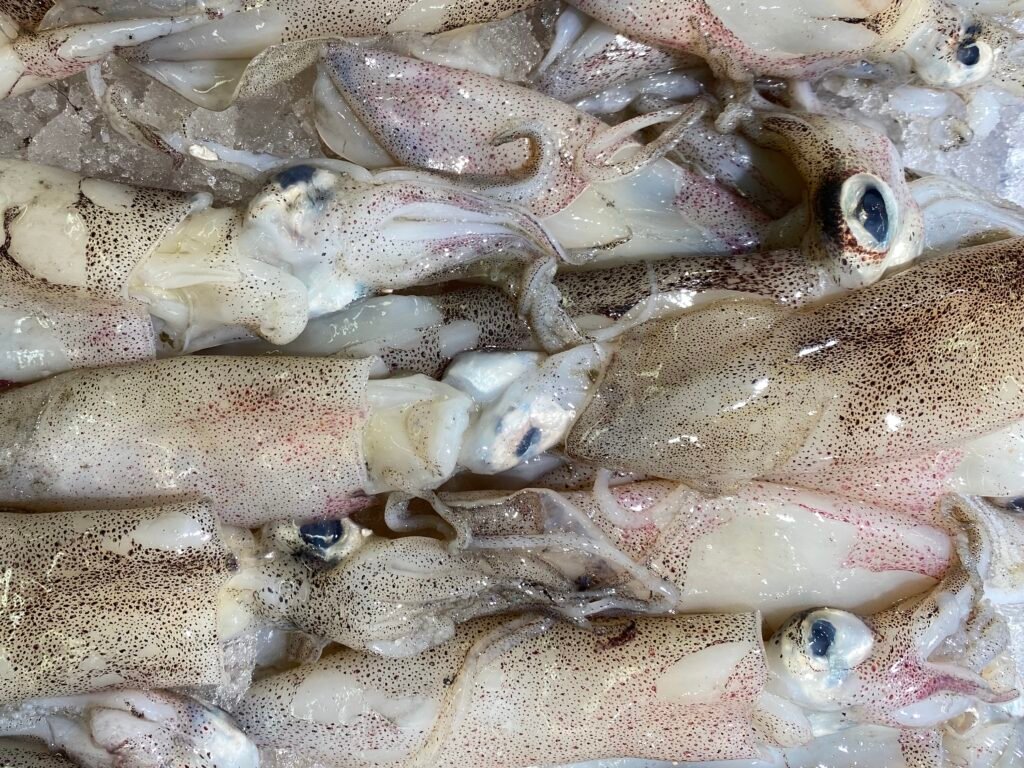You’ve probably heard the terms “vegetarian” and “vegan” being thrown around when it comes to diet choices, but do you know the difference? In this article, we’ll take a closer look at the contrasting nutritional aspects of vegetarianism and veganism. Whether you’re considering changing your diet or simply curious about the variations, get ready to explore the differences between vegetarian and vegan nutrition.

This image is property of images.unsplash.com.
Vegetarian Nutrition
Definition
A vegetarian diet is a dietary pattern that excludes meat, poultry, and fish. However, it still includes a variety of plant-based foods such as fruits, vegetables, grains, legumes, nuts, and seeds. Vegetarians may also consume dairy products and eggs, depending on the specific type of vegetarian diet they follow.
Types of Vegetarian Diets
There are different types of vegetarian diets, each with its own variations.
- Lacto-Ovo Vegetarian: This is the most common type. It excludes meat, fish, and poultry but includes dairy products and eggs.
- Lacto Vegetarian: This diet excludes meat, fish, poultry, and eggs but includes dairy products.
- Ovo Vegetarian: This diet excludes meat, fish, poultry, and dairy products but includes eggs.
- Flexitarian: This is a more flexible approach, where individuals primarily follow a vegetarian diet but occasionally include small amounts of meat or fish.
Protein Sources
Protein is a crucial nutrient for the body’s growth, repair, and maintenance. Vegetarians can obtain sufficient protein from a variety of plant-based sources. Some excellent sources of protein for vegetarians include:
- Legumes such as lentils, chickpeas, and black beans.
- Soy products like tofu, tempeh, and edamame.
- Quinoa, a grain that is considered a complete protein.
- Greek yogurt and cottage cheese (for lacto-ovo vegetarians).
- Eggs, if consumed (for ovo vegetarians).
Iron Sources
Iron is an essential mineral that plays a vital role in transporting oxygen throughout the body. While plant-based iron sources are not as readily absorbed as animal-based sources, vegetarians can still meet their iron needs through these foods:
- Legumes like lentils, kidney beans, and chickpeas.
- Dark leafy green vegetables such as spinach, kale, and collard greens.
- Whole grains like quinoa and fortified cereals.
- Nuts and seeds, particularly cashews, almonds, and pumpkin seeds.
- Dried fruits such as apricots and raisins.
Calcium Sources
Calcium is crucial for healthy bones and teeth, and vegetarians have several non-dairy options to ensure adequate calcium intake. Excellent vegetarian sources of calcium include:
- Fortified plant-based milk alternatives like almond milk, soy milk, and oat milk.
- Leafy green vegetables including kale, broccoli, and bok choy.
- Tofu, especially calcium-set tofu.
- Almonds and sesame seeds.
- Calcium-fortified orange juice.
Vitamin B12 Sources
Vitamin B12 is primarily found in animal-based foods, making it a concern for vegetarians. However, there are some vegetarian sources of vitamin B12, including:
- Dairy products like milk, cheese, and yogurt (for lacto-ovo vegetarians).
- Eggs (for ovo vegetarians).
- Fortified plant-based milk alternatives, breakfast cereals, and nutritional yeast.
- Vitamin B12 supplements, if necessary.
Omega-3 Fatty Acid Sources
Omega-3 fatty acids are essential for heart and brain health. While they are commonly found in fatty fish, vegetarians can obtain omega-3s from plant-based sources such as:
- Chia seeds and flaxseeds.
- Walnuts and soybeans.
- Algal oil, derived from algae, often used in vegan omega-3 supplements.
Potential Nutrient Deficiencies
Vegetarian diets, when well-planned, can provide all the necessary nutrients. However, some potential nutrient deficiencies may occur if certain foods are not adequately included. These include:
- Protein deficiency: Lack of varied protein sources can lead to inadequate protein intake.
- Iron deficiency: Plant-based iron sources are less bioavailable, so consuming vitamin C-rich foods alongside iron sources can enhance absorption.
- Calcium deficiency: Without dairy, vegetarians need to focus on getting sufficient calcium from other sources.
- Vitamin B12 deficiency: Vegetarians should be mindful of their vitamin B12 intake and consider supplementation if necessary.
- Omega-3 fatty acid deficiency: Including plant-based sources or omega-3 supplements is crucial for vegetarians.
Health Benefits
Adopting a well-balanced vegetarian diet can offer several health benefits:
- Reduced risk of heart disease: Plant-based diets have shown to lower blood pressure and cholesterol levels, thus reducing the risk of cardiovascular diseases.
- Lower risk of certain cancers: Consuming more fruits, vegetables, and legumes, which are common in vegetarian diets, may reduce the risk of certain types of cancer.
- Weight management: Vegetarian diets are often lower in calories and saturated fat, making it easier to maintain a healthy weight.
- Improved digestion: High fiber content in plant-based foods can promote regular bowel movements and improve digestive health.
Considerations for Vegetarian Nutrition
While vegetarian diets can be nutritionally adequate, it is essential to consider the following factors:
- Varied food choices: Ensure a wide range of plant-based foods to obtain all essential nutrients.
- Meal planning: Careful planning of meals and snacks helps ensure proper nutrient intake.
- Protein combining: Combining complementary plant protein sources (e.g., legumes with whole grains) can enhance protein quality.
- Supplementation, if needed: Consider supplements for nutrients of concern, such as vitamin B12 or omega-3 fatty acids.
Vegan Nutrition
Definition
A vegan diet is a type of vegetarian diet that goes a step further by avoiding all animal products, including meat, poultry, fish, dairy, eggs, and any other foods derived from animals. Veganism extends beyond just dietary choices and also includes abstaining from using animal-based products in other aspects of life, such as clothing or cosmetics.
Protein Sources
Similar to vegetarians, vegans can obtain adequate protein from plant-based sources. Some excellent sources of protein for vegans include:
- Legumes like lentils, beans, and chickpeas.
- Soy products such as tofu, tempeh, and edamame.
- Quinoa, amaranth, and other whole grains.
- Nuts and seeds, including almonds, peanuts, chia seeds, and hemp seeds.
- Seitan, a protein-rich wheat gluten product often used as a meat substitute.
Iron Sources
Iron is a crucial nutrient for vegans, and it is important to ensure adequate intake through plant-based sources like:
- Legumes including lentils, kidney beans, and black beans.
- Dark leafy green vegetables such as spinach, kale, and Swiss chard.
- Whole grains like quinoa, brown rice, and fortified cereals.
- Nuts and seeds, particularly cashews, almonds, pumpkin seeds, and sesame seeds.
- Dried fruits such as raisins, apricots, and prunes.
Calcium Sources
For vegans, non-dairy sources of calcium become even more important. Good vegan sources of calcium include:
- Calcium-fortified plant-based milk alternatives like soy milk, almond milk, and oat milk.
- Fortified orange juice and breakfast cereals.
- Leafy green vegetables like kale, collard greens, and broccoli.
- Tofu, especially calcium-set tofu.
- Almonds and sesame seeds.
Vitamin B12 Sources
Vitamin B12 is a nutrient of concern for vegans since it is mainly found in animal-based foods. Vegans can obtain vitamin B12 from the following sources:
- Fortified plant-based milk alternatives, breakfast cereals, and nutritional yeast.
- Vitamin B12 supplements, specifically designed for vegan needs.
Omega-3 Fatty Acid Sources
Vegans can obtain omega-3 fatty acids from plant-based sources, such as:
- Ground flaxseeds and chia seeds.
- Walnuts and hemp seeds.
- Algal oil, derived from algae, often used in vegan omega-3 supplements.
Potential Nutrient Deficiencies
While a well-planned vegan diet can provide all necessary nutrients, vegans should be aware of potential deficiencies in the following areas:
- Protein deficiency: Ensuring a variety of plant-based protein sources and meeting protein requirements is essential for vegans.
- Iron deficiency: Plant-based iron sources are less readily absorbed, so consuming vitamin C-rich foods alongside iron sources is beneficial.
- Calcium deficiency: Vegans need to pay attention to calcium-rich foods or consider calcium-fortified plant-based milk alternatives.
- Vitamin B12 deficiency: Vegans should rely on fortified foods or supplements to meet their vitamin B12 requirements.
- Omega-3 fatty acid deficiency: Consuming plant-based sources or suitable supplements is important for vegans.
Health Benefits
Following a well-balanced vegan diet can provide several health benefits:
- Weight management: Vegan diets often have lower calorie and fat content, which can help with weight loss or maintenance.
- Heart health: Vegan diets have demonstrated significant reductions in risk factors for heart disease, such as lowered blood pressure and cholesterol levels.
- Type 2 diabetes prevention: Studies have shown that vegan diets can improve insulin sensitivity and lower the risk of developing type 2 diabetes.
- Reduced risk of certain cancers: High consumption of fruits, vegetables, and fiber-rich foods in vegan diets may lower the risk of certain cancers.
- Environmental impact: Choosing a vegan lifestyle promotes sustainability, as it reduces greenhouse gas emissions and preserves natural resources.
Considerations for Vegan Nutrition
Vegans should keep the following considerations in mind to maintain a nutritionally balanced diet:
- Nutrient planning: Pay attention to a diverse range of plant-based foods to obtain all essential nutrients.
- Calcium supplementation: It may be necessary for vegans to take calcium supplements if their dietary intake is insufficient.
- Vitamin B12 supplementation: Vegans must rely on fortified foods or supplements to ensure adequate vitamin B12 intake.
- Omega-3 fatty acids: Including plant-based sources like flaxseeds or algal oil supplements can provide essential omega-3 fatty acids.
- Consulting a healthcare professional: If unsure about meeting specific nutrient needs, consulting a registered dietitian or healthcare professional is advisable.

This image is property of images.unsplash.com.
Comparing Vegetarian and Vegan Nutrition
Protein Intake
Both vegetarian and vegan diets can provide adequate protein if planned well. However, vegans may need to pay closer attention to their protein intake and ensure they incorporate a variety of plant-based protein sources to meet their requirements.
Iron Absorption
Iron absorption from plant-based sources can be enhanced by consuming vitamin C-rich foods at the same meal. Both vegetarians and vegans should include vitamin C-rich fruits or vegetables, such as oranges or bell peppers, to increase iron absorption.
Calcium Absorption
Vegans, who exclude dairy, need to be particularly mindful of their calcium intake. While both vegetarians and vegans can obtain calcium from plant-based sources, vegans may need to incorporate more calcium-rich foods or consider calcium-fortified plant-based milk alternatives to meet their needs.
Vitamin B12 Absorption
Vitamin B12 is primarily found in animal-based foods, and both vegetarians and vegans need to pay special attention to their intake. Vegans should consider fortified foods or supplements, while vegetarians can rely on dairy products or eggs to meet their vitamin B12 needs.
Omega-3 Fatty Acid Intake
Plant-based sources of omega-3 fatty acids are available to both vegetarians and vegans. However, vegans should consider incorporating plant-based sources like flaxseeds, walnuts, or algal oil supplements to ensure sufficient intake of these essential fatty acids.
Potential Nutrient Deficiencies
Both vegetarian and vegan diets have a risk of certain nutrient deficiencies if not properly planned. However, with careful attention to dietary choices and, if necessary, supplementation, these deficiencies can be minimized or prevented.
Health Benefits
Both vegetarian and vegan diets offer numerous health benefits, including reduced risk of heart disease, certain cancers, and obesity. Both can also contribute to better overall health and well-being when followed in a balanced and nutrient-rich manner.
Feasibility and Practicality
Choosing between a vegetarian and vegan diet depends on individual preferences and beliefs. It is essential to consider factors such as personal health goals, ethical concerns, environmental sustainability, and feasibility in terms of food availability and personal lifestyle choices.

This image is property of images.unsplash.com.
Conclusion
Vegetarian and vegan diets can be nutritionally adequate when well-planned and include a diverse range of plant-based foods. Both can provide sufficient protein, iron, calcium, and other essential nutrients if attention is given to food choices and, if necessary, appropriate supplementation. While each dietary pattern has its own considerations, health benefits, and potential nutrient deficiencies, the feasibility and practicality of adopting a vegetarian or vegan lifestyle depend on individual circumstances and personal preferences. Consulting a registered dietitian or healthcare professional can provide tailored advice and guidance to ensure optimal nutrition on either dietary path.

